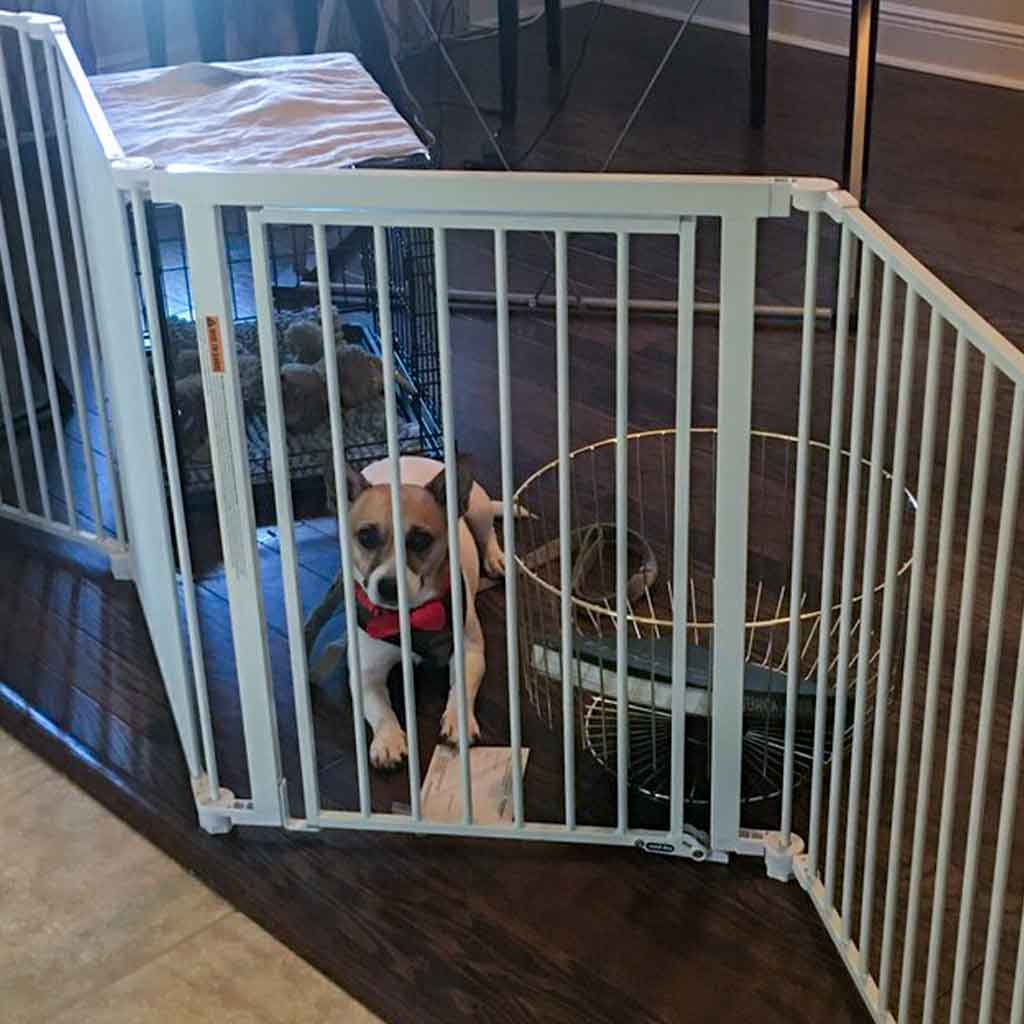Bringing a new dog home can be an exciting and rewarding experience, but it’s important to take some steps to help your new furry friend feel comfortable and settle into their new environment.
Whether you just brought home a brand new puppy or adopted an adult dog from a local shelter, these tips will help you start right!
Before bringing the dog home, acquire a crate and ideally an exercise pen. You may “puppy-proof” a small room with a baby gate in the doorway like a laundry room or bathroom, as an alternative to the pen. However, you may find that the dog chews on whatever is available in these areas, so be sure to supervise! These confinement zones will provide a safe space for your new dog to spend time and prevent them from engaging in unwanted behavior. It also lets other pets adjust to the new dog’s presence and allows you to monitor interactions.
Establish a routine: Dogs thrive on routine, so try to establish a regular schedule for feeding, exercise, and playtime.
Give your new dog several days to decompress and settle in. It is essential for newly adopted adult dogs. Please don’t take them to the pet store or on big adventures yet. Let them spend time in your house and yard learning about their new home.
When your new dog is out of the safe space, let them drag a regular leash and supervise them at all times. The leash helps you keep track of where they are and allows you to redirect them if needed without grabbing their collar quickly. It also helps prevent accidental slips out the door! Your goal is to prevent them from engaging in bad habits like counter surfing, chewing up objects, peeing on the rug, etc.
Use the dog’s regular food or treats throughout the day to reward good behavior and BE GENEROUS! This is the fastest way to get your dog to understand what you want them to do. When you notice them lying calmly, walk by (quietly) and place a treat right before their nose. Do this A LOT, and you’ll have a dog that offers to lay calmly and quietly way more often.
Spend quality time: Spend time bonding with your new dog through playtime, walks, and cuddles.
Feed the new dog meals in the crate and/or pen, so they are separated from other pets. It also helps them associate the confinement spaces with positive experiences. It would help if you also tossed treats into the crate and pen throughout the day to reward the dog for going inside.
Consult a veterinarian: Take your new dog to the vet for a check-up and to establish a healthcare plan.
Start training: Begin training your new dog right away to establish rules and boundaries. Start with basic commands such as “sit,” “stay,” and “come.”
Most importantly, if you struggle with a new dog’s behavior, get some help from a professional! The sooner you get help, the less time your dog has to practice unwanted behavior, and the easier it is to get back on track!

Puppy Training Treasure Coast
Puppy training is an essential part of ensuring that your furry friend grows up to be a well-behaved and obedient dog.
Here are some first steps for puppy training:
-
House training: The first step is to house-train your puppy. Start by establishing a regular routine for feeding and taking your puppy outside to eliminate waste. Praise your puppy when they go outside, and be patient if they have an accident indoors. Be consistent in your training and give your puppy plenty of opportunities to go outside.
-
Socialization: Socialization is crucial for your puppy’s development. Introduce your puppy to different people, dogs, and environments to help them become comfortable with new experiences. Puppy classes can also be a great way to socialize your puppy and teach them basic obedience.
-
Basic obedience: Start teaching your puppy basic obedience commands such as “sit,” “stay,” “come,” and “heel.” Use positive reinforcement techniques, such as treats and praise, to encourage your puppy to obey your commands.
-
Crate training: Crate training can help your puppy feel safe and secure, and can also aid in house training. Introduce your puppy to the crate gradually and make it a positive experience by giving them treats and toys inside the crate.
-
Exercise: Puppies have a lot of energy and need regular exercise to stay healthy and happy. Take your puppy for walks and play games with them to help burn off excess energy.
Remember, puppy training takes time and patience, but it’s worth it to have a well-behaved and happy dog.

